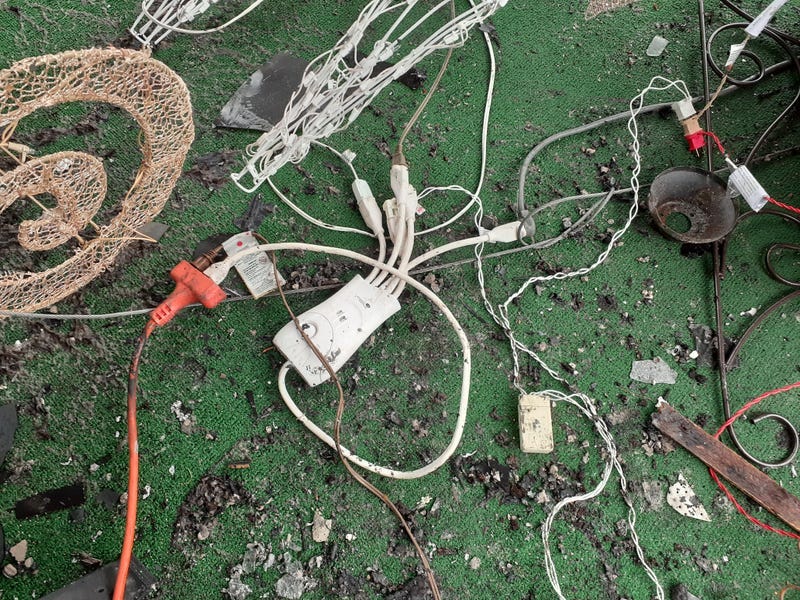
PHILADELPHIA (KYW Newsradio) — This time of year, firefighters are consistently responding to house fires caused by dry Christmas trees, overloaded power cords and space heaters.

After last week’s fatal fire in Fairmount, followed by the deadly Bronx blaze over the weekend, fire officials are reminding the public about commonly used household items that could pose a flammable threat.
Smoke detectors are a staple in every home, but when people are cooking or their alarms start chirping, Philadelphia Fire Department Assistant Chief Rob Wilkins said they often remove them — and forget to put them back.
“When folks take down a smoke alarm or remove a battery, they’ve reduced their chance at survival of a fire exponentially,” he said.
Smoke alarms should be tested once a month. While going around the house checking on those alarms, experts say it’s also a good idea to note what’s plugged in, and where.
“Laptops and cellphones and everything that uses a lithium-ion battery now,” said Wilkins. “Folks forget, you shouldn’t charge that on a surface that’s combustible. That means under your pillow, on your bed or on your sofa.”
Space heaters, too: “They should be unplugged at night. You should never go to sleep with an electrical heater on.”
Other small preventative measures include being aware of extension cords, cleaning the lint line out of the dryer and being mindful of what’s happening under your roof. Notice what you’re using around candles, too — things like hairspray and nail polish remover near an open flame can have serious consequences.
Wilkins said one thing he wishes more people would make is an emergency plan that the whole family knows.
“That means going around to every room of your house, drawing a map of your house,” he said. “Going into every room and identifying both ways out, windows and doors.”


